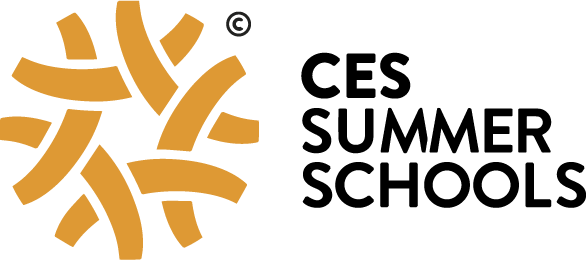[DR | Photo: 'Freedom' by Zenos Frudakis]
Unlike the conception of art as representation and reception, artistic practises revolve around the socio-pedagogical function of an act that reveals itself as enunciation. This act consists of the still time of an experience, a dream, a declaration or a rebellion transmitted through a poem, an image, a sound or a movement. And also of all these at the same time, as an integral expression of ideographic scenarios representative of experiences. To this end, it is necessary to previously overcome the exhibitionist condition granted to the body as a form of social representation (Groys, 2015) and endow it with a representation sustained over time through the dialectical image (Benjamin, 2008). In this sense, we treat art from the conception of cultural practice as a response to schemes of domination. But above all, as aesthetic forms with which we try to build new horizons of emancipation, based on a democratic culture, in the face of institutionalized forms of domination and oppression (Young, 2000).
The public dimension of art transcends oblivion and silence, creating other models of relationships and interactions. Models where people can free their imagination, express their experiences and design future spaces of citizenship. The creative and participatory contingency of art is based on the opening of spaces of exchange aimed at the ecology of knowledges (Santos, 2019). In this exchange, artistic practice produces knowledge by rescuing the memory of the body as a place of lost territories” (Ariza, 2015). That is, those territories that the official history hides, those that the dominant society dominates. The bodies are an inseparable part of this veiled territoriality. They are bearers of a history incomplete with the exclusivity of the official writing. In this sense, artistic practices fulfil a cognitive function in the context of the social sciences, providing different, polysemic, transdisciplinary research lines. Artistic practises are in search of complementary knowledge to social sciences and humanities through aesthetic mediation as corporeal, tangible forms of knowledges that embody reality (Santos, 2021).
This proposal is based on a Roundtable of Knowledges’ workshop, held on October 27th, 2022 and which served as a pilot experience for the Summer School we propose here. It is based on artistic practice as an identity expression of the imaginary of those who find themselves in processes of counter-hegemonic resistance. Basically, it consists in the detection and exploration of domination devices through everyday logics. These devices are materialized through actions, images, archives, etc., and allow us to rehearse alternative spaces of coexistence through an aesthetics that takes into account the historical experiences of communities and people.
The methodology crosses two fields of practical application that have in common the search for plural and reciprocal knowledge. On the one hand, participatory action research (Fals-Borda, 2015), which supports the complicity of communities' experiences as a valid knowledge space. On the other hand, Arts-Based Research from an action perspective where there is no separation between subjects, between theories and practices or between research and artistic practices (Borgdorff, 2012). Therefore, the workshop will be a space to share a research experience guided by the participants' social and cultural practice.
Overview
This Summer School will have a set of three artistic and social dynamics: A, B and C. Each of them will be led by a different artist in conjunction with a social scientist. The dynamics are:
Dynamics A. Visual Dynamics
Dynamics B. Performative Dynamics
Dynamic C. Musical-sound dynamics
Important: Each participant can only participate in one of the dynamics. They should also send with their registration a short document describing the points listed below. This document is important for the development of the dynamics.
- A paragraph describing an artistic practice that you currently practise (what it is, how you practise it, what motivates you, what character the experience has and what impact it has on the participant) (5 lines approx.)
- Choose an immaterial object/offering to take to the summer school. This immaterial object/offering (photograph, sound material, image, movement/movement score, poem or short story) will serve as an artistic support in the dynamics. Therefore, the participant will choose their object in coherence with the dynamics in which they will participate. For example: a sound if it is in the dynamics of music, a photograph, a poem, etc.
- A paragraph describing the possible relationship between the object and a social problem in your community, region or country (3 to 5 lines)
The Summer School will have a first part in which each participant will work together with an artistic coordinator and a social scientist within the dynamics (A, B and C). Based on the artistic experience of the participants and through the immaterial object/offering that each participant brought, each dynamic will result in a small artistic contribution, which should be presented at the end of the Summer School.
In the second part, in the large group, a collective creation will be worked on based on the work done in each subgroup and according to the dynamics carried out. This collective creation will be presented in a performance as the final product of the Summer School.
Coordinators
Cláudia Pato de Carvalho and Manuel Muñoz Bellerin
Trainers
Cláudia Pato de Carvalho, CES
Manuel Muñoz Bellerin, CES
Sebastian Gougain, CES
Target Audience
Artists, students of social sciences and humanities, researchers, technicians of social and artistic intervention
Deadlines
Submission of applications (30 places) via email to claudiacarvalho@ces.uc.pt until 20 April 2023
Notification of the results after April 20, 2023
Registration and proof of payment until May 22, 2023
Registration fees
Regular: 100 Euros
Student: 50 Euros
CES Community: 70 Euros
(+) Registration will only be refundable for 50% of its value upon presentation of justification with a medical certificate, up to 15 days before the start of the Summer School
Language
Portuguese and Spanish
Partnerships
Pablo de Olavide University (Seville)

